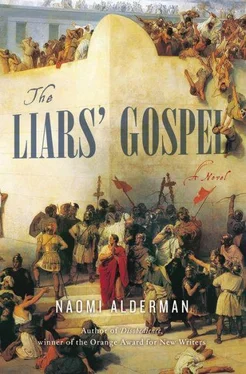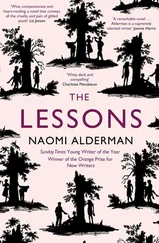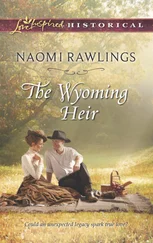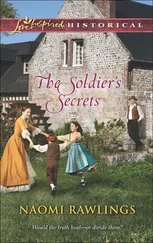He said, “Tell me, is it permitted to save a life on the Sabbath day?”
And one of his followers shouted out, “It is permitted!”
He said, “And is it permitted to do anything which might save a life? Even if the outcome is uncertain, is it permitted?”
One of the other men in the crowd, not one of Yehoshuah’s friends, called out, “It is permitted!”
“Well then”—he turned his whole body round to Ezra in a jerking unsteady motion—“who are you to say that I should not perform a cure! For if I left them one more day, perhaps there would be no cure at all? And tell me”—now he spread his arms wide to the crowd, but still spoke quietly—“is it permitted to circumcise on the Sabbath, revered Ezra?”
Ezra, a little puzzled, but gracious, nodded to acknowledge the truth.
“It is permitted, of course. If the eighth day after the boy is born is a Sabbath, we circumcise on the Sabbath.”
“Well then!” Yehoshuah turned to the crowd. “If we can put right one part of the body — and not even a part that is broken or hurting — all the more so we should be able to make right other parts!”
Emek was a pious village. But this argument made sense. There were some unwilling nods in the crowd.
Ezra stood up and, with all the appearance of good humor, said, “But God has told us to circumcise on the Sabbath! He has not told you to heal. Where is it written or handed down in the law? The Lord Himself rests on the Sabbath — this is how we know your power does not come from Him!”
Yehoshuah became angry now. It was swift and frightening to see him flash to sudden wrath.
“You say my power comes from Ba’al Zvuv, whom the Philistines call the prince of demons,” he said, “but I drive out demons from sick men and women! You’ve seen me!”
He appealed to the section of the room containing his friends, but Miryam saw several others nodding.
“And can a demon drive out demons? Can the prince of devils drive out devils? A house divided against itself cannot stand!”
He thumped the table now and looked down for a moment breathing deeply. When he looked up, his face was dark.
“Listen,” he said, “Rabbi Ezra, you’re committing a grave sin. Because you’re slandering God. Now, we all know”—he stared around the room—“that if you tell a lie about your friend and you ask forgiveness, if he forgives you God will also forgive it. But if you tell a lie about God,” he was shouting now, “if you tell a lie about God there is no forgiveness for you! God will not forgive you, Rabbi Ezra, for lying that my power is not from Him!”
The arguments continued. At times Ezra seemed to hold the crowd’s approval and at times they favored Yehoshuah. At one moment, when the crowd were shouting to Yehoshuah, “Praise God!” and “You speak the truth!” one woman called out, louder than the rest: “Blessed is the mother who gave birth to you, Yehoshuah, and blessed are the breasts that nursed you!”
Miryam saw which woman it was who said this. She was young, neatly dressed, no children with her. She thought: this woman does not even know me and yet she loves me. And she almost spoke up and said: it is me. I am here.
But Yehoshuah replied angrily, “No. Blessed are those who hear the word of God and obey it.”
And she said nothing. And the debate went on.
There was a raving quality to Yehoshuah. As he spoke, spittle flew from his mouth, his face became red, his eyes looked wildly, angrily around the room. He quoted from the Torah and from words he’d heard listening to the sages. And she thought: is this my son? How did this man come from me? Every parent will think this about their child someday — all children become strangers to those who gave them birth. This was what she told herself.
When they finished speaking it was dark. Their arguments had twisted and turned, each of them had become angry and dissatisfied with the reasoning of the other. At last when it was evening Ezra called a halt and they embraced as friends, as was right. Ezra said: come, eat meat with us and bread and drink wine. And most of the crowd began to disperse. They had meals to eat in their own homes, or long walks to make. Only Yehoshuah’s little band of friends, thirty or forty of them, and Ezra and the elders of the village remained while Ezra’s wife and daughters brought roast lamb and bread and olives and fresh figs.
Miryam waited longer than she should, she supposed. She could have rushed through while the crowd was dispersing and touched Yehoshuah’s arm, and perhaps he would have turned around and smiled and said, “Mother!” She sometimes occupies herself for hours imagining that that is what happened, imagining the smile on his face and her own swelling heart.
But by the time she had gathered the family and given the little children the last of the bread and cheese and straightened her robes and her head-covering the men were already in the smaller back room of the synagogue, eating. She walked around to the back of the building, holding Iov and Michal by the hand, the other brothers walking behind her. There was a sound of loud debate, noisy laughter from behind the old wooden door. She wormed her hand out of Iov’s sticky grip and knocked.
A man opened the door a crack. She recognized him. It was a friend of Yehoshuah’s. She had heard someone in the crowd point him out, Iehuda from Qeriot, a man with a curling beard and an anxious look. He frowned, as if she had said something entirely inappropriate before she even spoke.
“You are…Iehuda?” she said, trying to smile. “I’m…we are the family of Yehoshuah, your teacher. We are here to see him.”
His frown deepened. “I’ll ask if he wants to see you.”
“If he…”
But he had closed the door already. They waited there. Her older sons met her glance and then looked away. The anger rose from their shoulders like the steam-wreathed breath off cattle in the early mornings.
He came back. He had the grace, at least, to look embarrassed now.
He shook his head.
“He doesn’t want to see you,” said Iehuda from Qeriot.
He stood there for a moment in silence.
“What did he say?” said Yirmiyahu, the anger hard in his voice.
Iehuda from Qeriot moved his shoulders uneasily.
“It doesn’t…” He paused, breathed out through his nose, like a bull. “We are a family now,” he said, “we who follow his teachings, we are like his family.”
Through the open door she could hear her son’s voice. The other guests had become quiet and he was teaching. It was his voice, the consonants of that little boy she had taught to feed himself with a spoon, and if she shouted out now he would hear her. She wondered for a moment if Iehuda from Qeriot was lying. But she knew he wasn’t. She’d known as soon as she left for Emek. She’d known as soon as she’d heard that he was nearby, and in that same moment had realized that he hadn’t sent word.
She turned around to look at her children. Yirmiyahu would have been willing to start a fight with Iehuda from Qeriot, she thought. She hoisted Iov up onto her shoulders.
“Come on,” she said, “come on.”
When she came back to the village, she could not be bothered to hide that she had seen him. The people in the village asked where they’d gone, the whole family all together, and she said: we went to see my son, Yehoshuah, preaching. We ate meat and drank wine with him but we were tired and preferred not to travel further. She knew this would find its way to her husband. She did not care any longer. Neither could she care what was true and what a lie. She found that she was waiting for Yosef’s return not with fear but with a dull emptiness. She had sons and daughters but not one can fill the place of another, and she would never have another firstborn. She wanted to mingle truth with lies, and to have Yosef be angry with her for speaking to Yehoshuah, because that was better than remembering that he had not spoken to her at all.
Читать дальше












